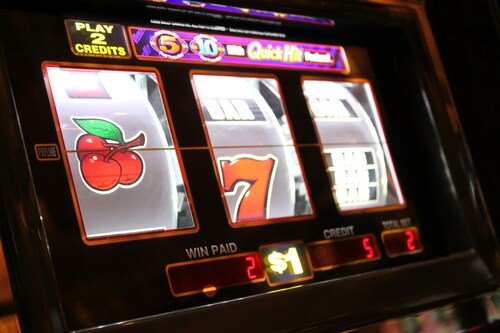Becoming a profitable, professional gambler takes far more than luck. At its core, it’s mastering the art and science of maximizing your edge while minimizing risk. Amateurs may win big in the short run, but long-term success requires skills and discipline that few possess.
Intrigued about what it takes? You’ve come to the right place. Below we’ll break down the secrets of profitable pro gamblers so you can appreciate the intricacies of their craft.
Managing Money Is King
More so than any other factor, effective bankroll management separates losing amateurs from winning professionals at N1 Hype Fighting. Profitable gambling depends on wagering a small percentage of your overall bankroll per bet. This allows you to endure inevitable losses while staying solvent over the long run.
As a rule of thumb, pros risk no more than 1-5% of their total bankroll on any single wager. This ensures they have enough capital on hand to weather a bad run of luck without going broke. Rookie gamblers often ignore bankroll management and regularly risk far too much per bet, putting them at risk of ruin. By keeping bets appropriately sized for your overall bankroll, you remain in action long enough for the advantages of skill and research to manifest.
Specialization Breeds Mastery
While recreational gamblers bet on anything and everything, professionals concentrate their efforts in narrow niches. Developing expertise in a specific sport, league, or bet type allows you to gain an intricate understanding of subtle edges. As legendary professional gambler J.P. McManus put it:
“A good big bet is worth a thousand poor little bets.”
In-depth specialization provides the insight required to identify those “good big bets” when the odds differ substantially from your own probability estimate. Wagering more aggressively when your analysis identifies overlays is the essence of value betting.
Specialization also breeds advantages in locating soft lines and markets with higher built-in margins. Rather than betting random games, seasoned pros patiently watch lines and wait for prime situations that stray from their projections. Limiting yourself to a niche sport prevents overextending your bankroll so you can fire with confidence when spots arise.
Information Is Ammo
One of the largest divides between pro and amateur gamblers is the rigor of their pre-bet routine. Professionals extensively research upcoming contests, analyzing key statistics, trends, injuries and other actionable intelligence. They identify predictive factors that lead to expected value in the odds. This information serves to more accurately forecast likely outcomes and expected values.
Some prosperous professional betting syndicates even employ teams of technical staff, analysts,and computer engineers dedicated to gaining an information edge. A famous example is Bob Voulgaris – one of the most successful NBA bettors ever recorded. His profits derive from proprietary simulation models and analytics that identify discrepancies between his projections and posted odds.
While individual bettors can’t match the scale of these operations, the lesson remains clear. Information and statistical modeling are the seeds from which edges grow. Time studying historical trends, lineup changes, referee assignments, travel schedules and more allow you to make better predictions than recreational gamblers skimming headlines. There is no luck over the long run – only process.
Think Like the House
To overcome built-in vig and margins, sharp gamblers emulate the mindset of the sportsbooks they bet against. That means blending handicapping skill with loss prevention through disciplined line shopping, smart bet structuring and measured risk allocation.
Professional sports bettor Alan Denkenson summed up this imperative, noting:
“I always laugh when people label me a professional gambler…the key is that I bet like a business, not a fan.”
A businesslike mentality includes traits like:
- Objective analysis rather than emotional picks
- Sport-specific specialization
- Meticulous record keeping
- Strict bankroll management
- Risk mitigation strategies
- Identifying +EV wagers with substantial edges
Blending these traits allows you to view gambling through a long-term expected value lens. With a large enough sample size, randomness regresses and skill prevails. But it requires immense discipline and perseverance. As Alan said:
“When I started keeping records 30 years ago, I realized that 1 pick a week with a 55% win expectancy was all that was needed to grind out an advantage. Understanding risk management and probabilities allowed me to wait weeks or months for that one play.”
Emulate the cautious and calculated approach of sportsbooks. Don’t chase losses or bet more than your selection expects to return long-term. With principles of bankroll conservation in place, you remain solvent until positive expected value manifests.
Final Tips to Bet Like the Pros
Implementing even a few of the following tips positions you ahead of recreational gamblers:
- Specialize – Handicap fewer sports or leagues more extensively
- Quantify edges – Use data to estimate expected value and identify overlays
- Line shop – Compare odds across books to get best price on your picks
- Manage bankroll – Only risk 1-5% of total capital per wager
- Critique picks – Track your record to identify flaws in process
- Stay disciplined – Never chase losses or go on tilt
- Think long-term – Focus on positive EV over large samples, not short term results
Gambling professionally requires immense skill, discipline and perseverance. But those willing to dedicate themselves to understanding complex games, identifying edges and managing risk reap lucrative rewards. Blend quantitative analysis with critical thinking. Stay patient in searching for value. The fruits of this craft take time to ripen, but once mature, they prove bountiful.




